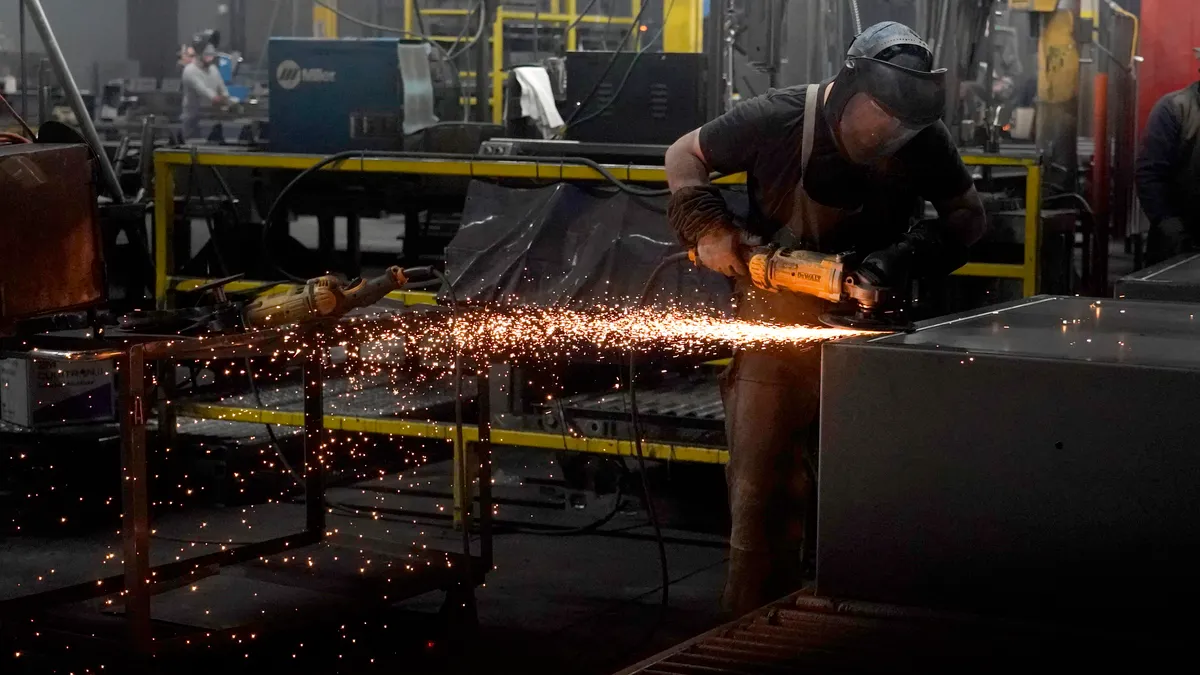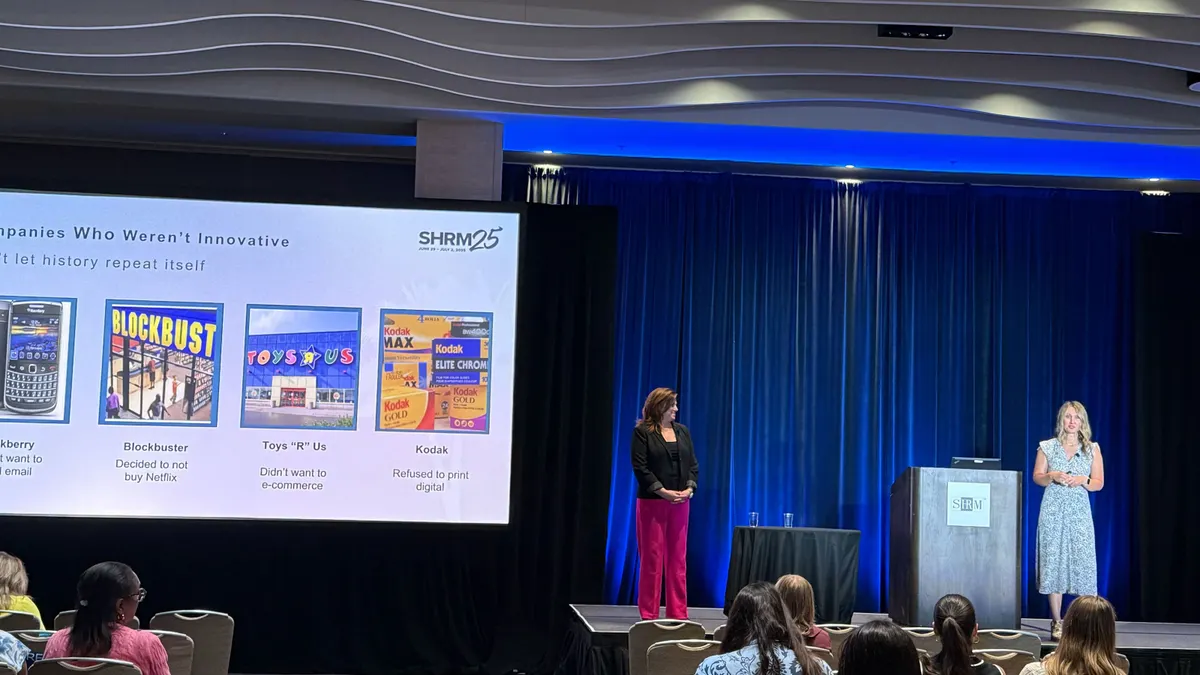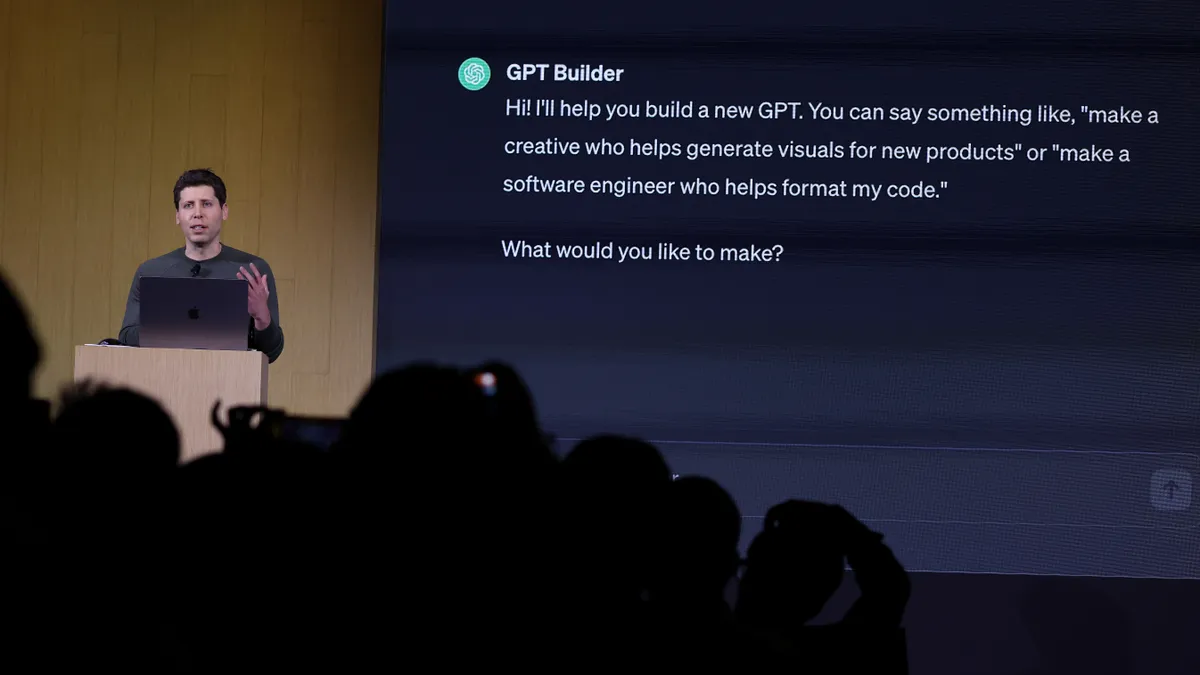A methodology associated with preparing the U.S manufacturing sector for World War II and the campaign that gave us Rosie the Riveter is now helping companies in all kinds of production train frontline leaders.
Known as Training Within Industry (TWI), the program is cited as an influence to the legendary efficiency models developed at Toyota Motor Corporation in Japan, as the leaders of TWI Institute explained. Today, TWI is helping companies pivot their operations and supporting business continuity during the coronavirus pandemic, primarily in healthcare and manufacturing.
"Even though it focuses on improving output and productivity, safety and all those things," TWI Institute principal Patrick Graupp told HR Dive, "at the core of the TWI program is what the Japanese like to call the human element."
The human element highlights the important role that frontline supervisors play in change management and continuous development efforts.
The program's roots go back to the War Manpower Commission, Scott Curtis, president and CEO of TWI Institute, told HR Dive. Among other domestic workforce matters, the wartime commission created this training program for manufacturing supervisors, who would be managing a glut of replacement workers after thousands joined the armed forces.
This development program eventually became a centerpiece of the training deployed by TWI Institute, whose clients include Coca-Cola, Boeing, BMW, LEGO and Merck.
"It's a program that focuses on building people skills at the frontline," Curtis said. "But it transcends that because if you look over time, those frontline leaders typically move up the organization into mid-management and then up into senior management."
After the war, the government used TWI in its post-war re-development efforts, Curtis explained. Toyota picked up the TWI learnings in the 1950s, incorporating it into what eventually came to be known as the Toyota Production System, a management philosophy that is believed to be a precursor to the concept of 'lean manufacturing.'
"It's just the fabric of what they do," Curtis said of TWI and Toyota's agility and emphasis on continuous improvement. "They don't even see it, it's like it's the air that they breathe because it's been around for so long."
Today, the U.S. government has commissioned TWI Institute to help manufacturers create essential products for disease prevention efforts and, in healthcare, to train retirees and volunteers to support hospital staffing needs. Graupp added that they're also training employees on sanitation protocols that are critical during this time.
As an example, Curtis mentioned a company that was just approved to manufacture ventilators and needed to quickly train new staff to make the order. "They're like, 'Okay, we've got to onboard 100 people [in] the next couple of days. How can you help us?'" Curtis shared, to which he answered, "Let's identify those half a dozen or so really critical jobs and tasks that those new people are going to be working on. … Let's establish the standard. Let's document the standard, and then let's train your people how to train to the standard."
Regardless of the environment, the training has three key pillars: understanding the importance of the job, learning how to do the job, and understanding why things are done in a certain way. That final piece is most important to Curtis, "so that we have that high level of adherence to the standard."
"That's what we're really trying to achieve is that through this training, we want to eliminate that variation that can be introduced initially from a training standpoint," Curtis said. "We don't necessarily have to have that variation there if we just train properly."
The TWI program is experiential in that it asks participants to bring real work projects to the training so they can handle current challenges and get on-the-job training. The real purpose is to "train-the-trainer" to a very high standard to maintain consistency in how new employees are managed across an organization.
"In any particular area, you may have a handful of people that are training newer employees or skilled employees on how to do a particular job. The problem is that finite inconsistency … what they typically get is that person's interpretation of how to do the job. … that's what we're really striving to do, is build that consistency in application for those that are doing the skills training."
One of the most common misconceptions that Curtis and Graupp see is the promotion of excellent line employees into management without any leadership training.
"We just assume, well, they were a good operator, therefore, they'll be the best supervisor," Graupp said. "We need to develop and train those people because, as many people often times complain, when their best operator is promoted, they say, 'I just lost my best operator. Now, I have my worst supervisor,' so it's kind of the worst of both worlds."
For the TWI methodology and TWI Institute, success during a crisis, or other situations where rapid change is necessary, boils down to the important role these frontline managers play. This is widely reflected in the Japanese management philosophies such as Toyota Production System and lean as well.
"They've always realized the importance of that frontline supervisory role, when you realize how important that person is in order to get success ... so [new employees] can be motivated to do the job, with good motivation, good at safety, with good attention to quality and productivity and so on. The critical nature of that first line supervisor, that's really the essence of TWI," Graupp said.
Better training, focused on frontline managers can be a real catalyst for culture and engagement given the influence of the role. Another key component is placing primary accountability for learning outcomes on the trainers instead of the employees themselves.
"When we have, for example, things like high turnover, [or] low morale, when we have those types of issues, it's because the operators, especially new workers, are frustrated. Because they haven't been trained well, they don't know what's expected of them. They try their best, they make mistakes, they get blamed for those mistakes," Graupp said.
"In TWI, we say our motto is 'if the worker hasn't learned, the instructor hasn't taught.'"




















